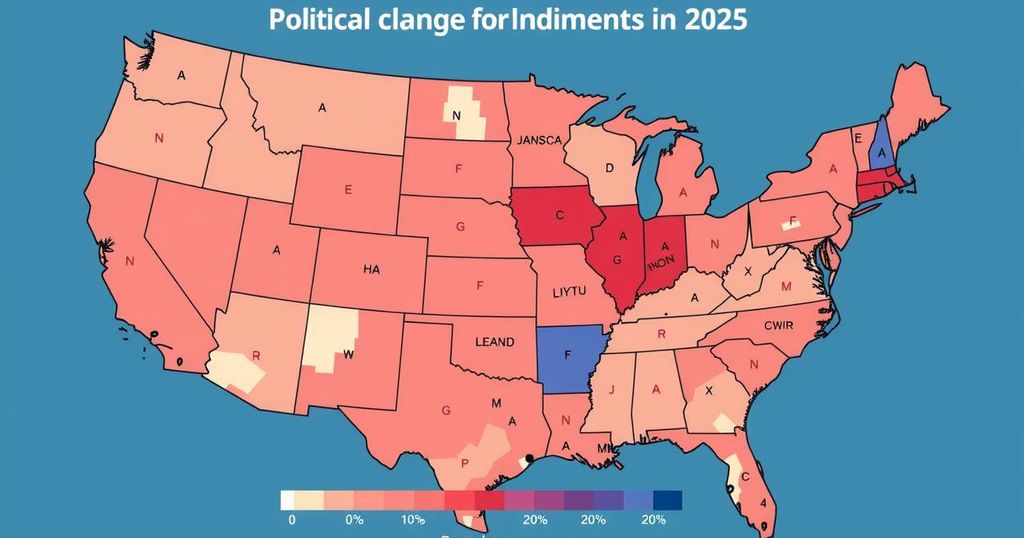2024 Elections: Incumbents Face Voter Backlash and Future Challenges
In 2024, incumbents faced unprecedented electoral defeats in developed democracies, largely due to public discontent fueled by inflation and diminishing party loyalty. This trend indicates a shift from traditional incumbency advantages to a more volatile political landscape, affecting upcoming elections in 2025. Analysts suggest these developments reflect broader societal changes in voter behavior and expectations.
The year 2024 has earned a notable reputation as “the year of democracy,” primarily due to its unprecedented election cycles characterized by a mass rejection of incumbents across developed democracies. This unique year witnessed an unusual failure of the incumbency advantage, where ruling parties lost electoral ground—a trend particularly highlighted by the Financial Times’ analysis. In an era where voters seem to be shifting from a mentality of maintaining the status quo to demanding change, the political landscape appears more volatile than ever.
Historically, incumbency was a formidable position for politicians, especially in wealthy democracies, which enjoyed long periods of governance stability. However, current trends indicate a significant shift; incumbents are increasingly vulnerable amid rising voter volatility. According to Ben Ansell, a political scientist from Oxford University, this evolving dynamic mirrors the electoral instabilities traditionally associated with developing nations.
A central issue contributing to the electoral fallout for incumbents in 2024 has been inflation, which reached unprecedented levels following global events like the Covid-19 pandemic and geopolitical tensions stemming from the conflict in Ukraine. The economic distress that inflation causes has consistently rallied public frustration towards government incumbents, as noted in the sentiments echoed by economist Isabella Weber: “Inflation kills them.”
Despite the bleak electoral outlook for incumbents, some analysts propose that existing challenges provide vital lessons for future governance. Mexico’s experience with Claudia Sheinbaum illustrates how addressing inflation through measures such as price controls can yield electoral benefits, emphasizing potential strategies that may help incumbents regain footing amid economic instability.
This electoral turbulence reflects broader societal shifts as modern voters display diminished party loyalty alongside an expectation for more immediate satisfaction from political choices, akin to consumer habits shaped by contemporary shopping experiences. Researchers like Roberto Foa and Ben Ansell are investigating how these shifts manifest in electoral patterns, noting that voters are increasingly inclined to switch allegiances in search of more appealing alternatives.
As the political scene evolves, upcoming elections in 2025 are set to challenge incumbents once again, with leaders like German Chancellor Olaf Scholz and Canadian Prime Minister Justin Trudeau facing significant electoral threats. The growing mood of voter discontent across various democracies indicates that the dynamics governing incumbency may continue to transform in unpredictable ways, reinforcing the essential principle of democratic accountability.
The article focuses on the political climate of 2024, noting a significant decline in the incumbent advantage across developed democracies. The discussion highlights the loss of vote share by governing parties amid rising voter disenchantment primarily attributed to inflation. The analysis explores how changing voter expectations and diminishing party loyalty impact electoral outcomes, suggesting that future elections may continue to challenge the status quo. The article provides context regarding global events that have influenced voter sentiment and the implications for incumbent leaders in 2025.
The trends observed in the electoral landscape of 2024 underscore a pivotal transformation in voter expectations and behavior in democracies. As inflation and economic dissatisfaction prompt a significant push against incumbents, the potential for continued volatility in upcoming elections remains high. This evolution highlights the necessity for political leaders to respond effectively to constituent concerns and adapt to changing social dynamics to maintain public support and ensure stability in governance.
Original Source: www.cnn.com




Post Comment